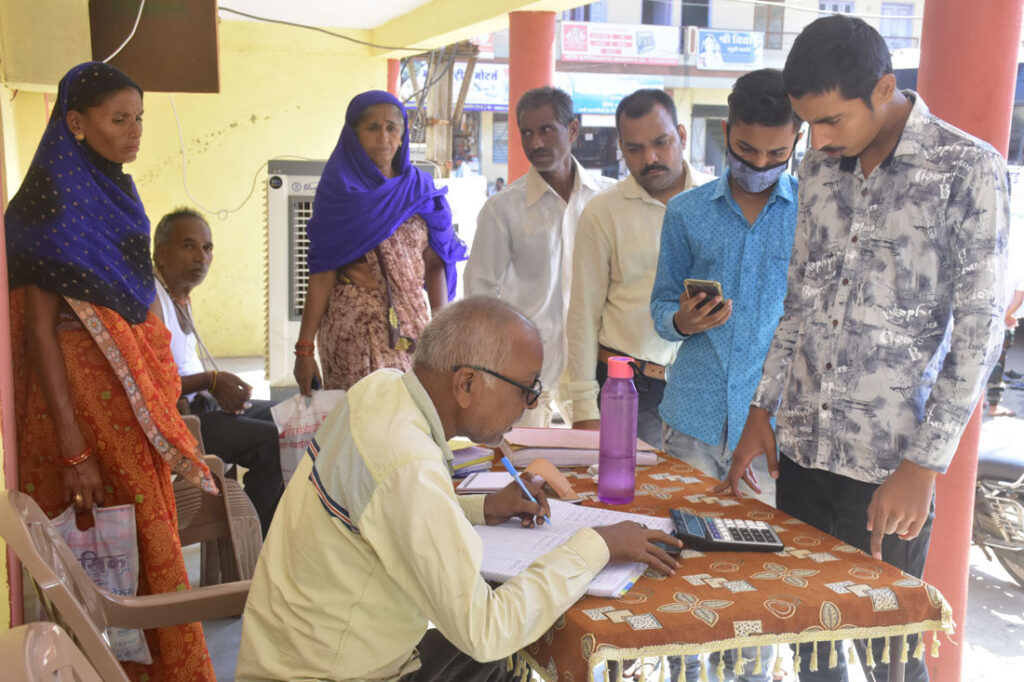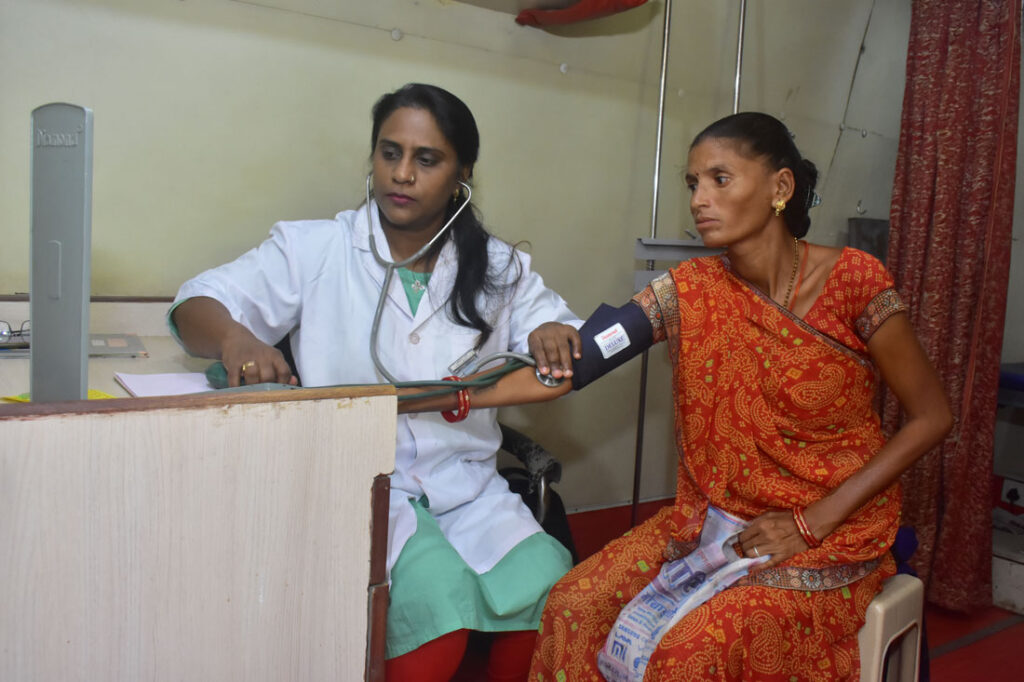bioRe health bus already in action
From June to mid-September, India has monsoon weather. This year, for the third year in a row, the rains lasted until mid-October. Bad for crops and favourable for the spread of dengue fever.
The yellow fever mosquito – also called the Egyptian tiger mosquito or dengue mosquito – transmits the viral disease from person to person. This pathogen of dengue fever probably originated in Africa, but is now widespread throughout the subtropics and tropics. This is also the case in our project area in India. The insects need stagnant water to lay their eggs. The puddles created by the continuous rainfall, but also rain barrels or buckets offer an ideal environment for their reproduction.
In Kasrawad, near the bioRe centre, 2-3 people are currently sick in each house. The local hospitals and doctors’ offices are full of patients showing symptoms of dengue fever. The bioRe farming families and bioRe staff are also severely affected. More than 20 patients with dengue fever are registered every day. For the farming families, diagnostic measures and medication are prohibitively expensive.
The bioRe mobile health unit responds to community needs and offers free diagnostics and dengue testing to farmers.



Treatment of the severe courses
The symptoms of dengue fever are often similar to those of flu: high fever, chills, headache, joint and limb pain. In some cases, however, complications occur that can also be life-threatening. Due to a sharp drop in blood platelets (thrombocytopenia) and increased permeability of the vessels, various types of bleeding can occur, or the heart can no longer pump enough blood through the body and vital organs such as the brain and kidneys are no longer supplied with sufficient blood. Such complications are life-threatening and must be treated in hospital.
Treatment for dengue fever can only relieve the symptoms, but not fight the virus itself. However, the suspicion of dengue fever can be confirmed by blood tests:
A blood sample from the patient is tested for dengue viruses and specific antibodies against the pathogen. The aim of the diagnosis is to identify severe cases quickly so that they can be referred to hospital. This can be life-saving.

The bioRe team visits remote areas together with the Mobile Health Team and provides information on preventive measures to avoid infection with dengue fever.
Raising awareness for dengue fever prevention
- Wearing long trousers and long sleeves.
- Applying mosquito sprays to skin and clothing.
- Mosquito nets over the bed and fly screens on windows and doors (impregnated with insecticides).
- Cleaning the environment and avoiding standing water to minimise the spread of the mosquito.
- Seek medical attention immediately if symptoms occur. Diagnosis also helps to minimise human-to-human transmission.
